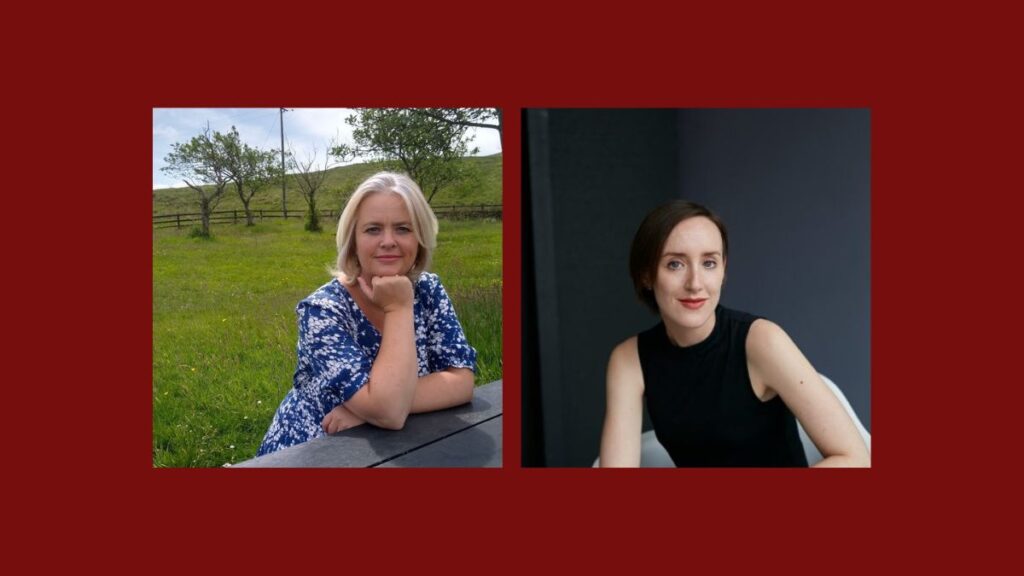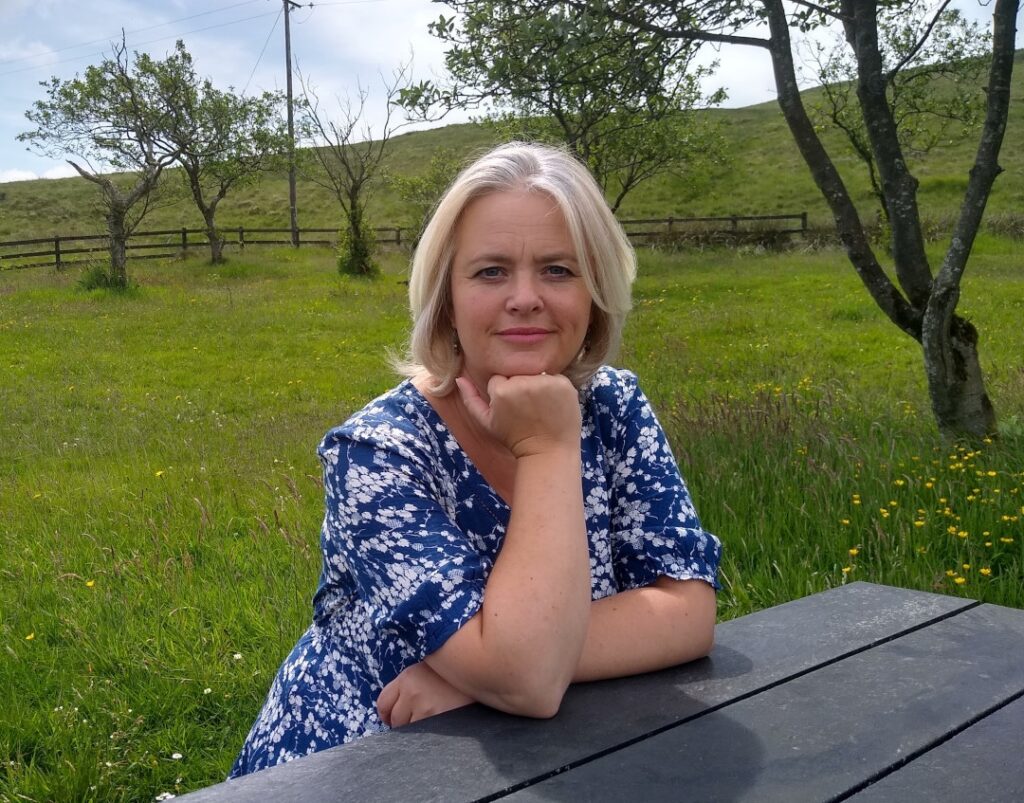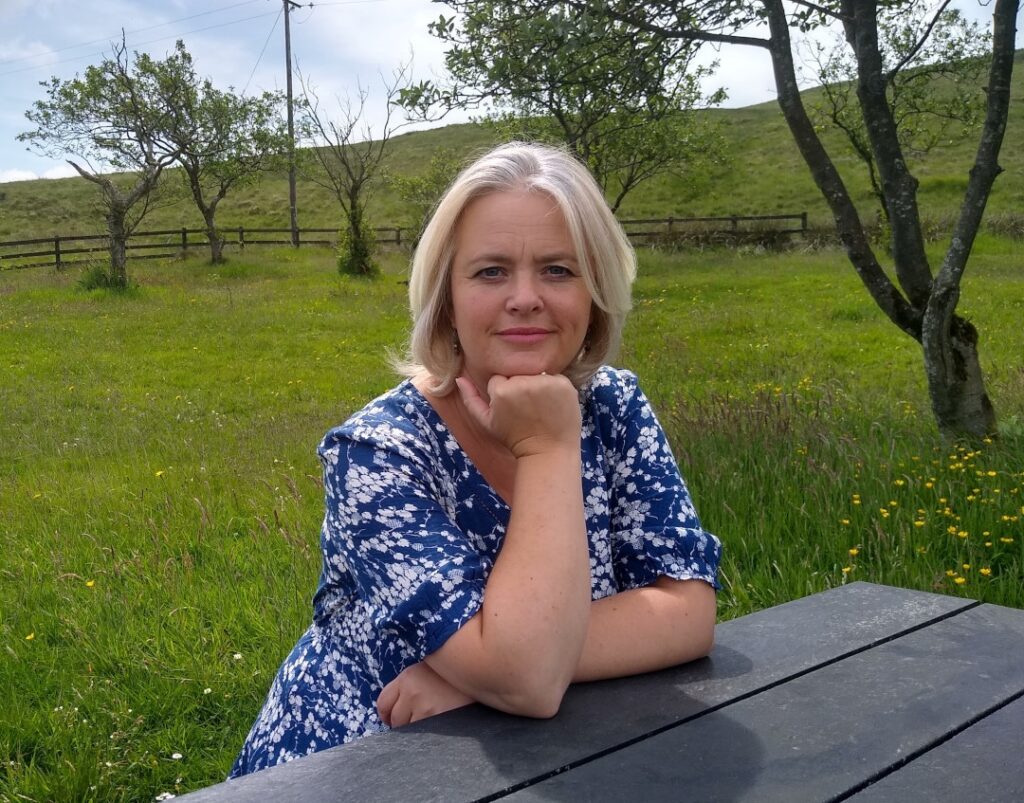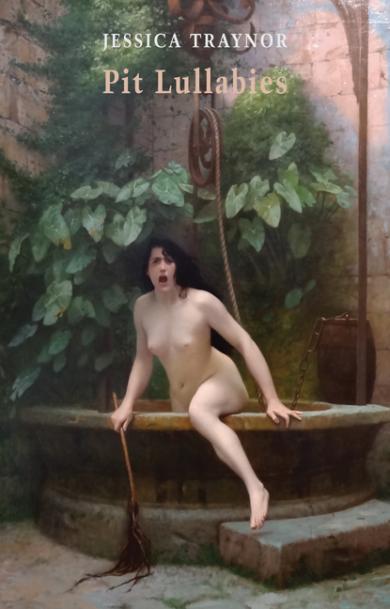
Becoming and unbecoming—Stephanie Conn talks with Jessica Traynor
“I think the experiences that led to this book, and the writing of this book, brought me back to an awareness of my own mortality.”
by Stephanie Conn
Pit Lullabies is a Poetry Book Society Recommendation and it is not difficult to see why. This is a stunning collection by a poet in full command of her medium and subject matter.
For those lucky enough to have discovered Jessica Traynor’s work early on, reading her carefully crafted poems has always been a rich and rewarding experience—and the work just gets better.
Publishing with UK-based Bloodaxe, Traynor’s work is likely to reach a new audience, and they are in for a treat.
Sinéad Gleeson believes Pit Lullabies proves that Jessica Traynor is ‘one of our finest poets, moving through myths, love, and the environment’ and sees Traynor’s poetry, ‘as confident being serious and historical, as it is when it’s arch and playful.’
This sentiment is echoed in Victoria Kennefick’s description of the book as ‘witty, wicked and moving in equal measure’.
Writing in the Irish Times, Martina Evans describes Pit Lullabies as ‘a book about motherhood and birth trauma’ with ‘roots… firmly entrenched in the natural world’. She argues that it’s the ‘strong sense of uncanniness throughout…that marks it with distinction’.
In the Sunday Independent, Liadán Hynes describes the collection as ‘a beautiful meditation on, among other themes, new parenthood, violence against women, and the destruction of the environment’.
In Traynor’s poem ‘In the Birthing Room’, the speaker feels ‘something tug in me – / a root that shouldn’t be disturbed’ yet this collection makes room for disturbance and is stronger for it. Such disturbance may uncover difficult truths and pain – ‘it seems right that this should hurt’ (Metaphysical Breast Milk) but also clears the way for new insights – ‘wild things reveal themselves’ (Ophelia in Ballybough).
Pit Lullabies is book of becoming and unbecoming, in which it is important to ‘talk about things we can’t see’ (Midwinter).


What is your intention for the book?
I hope that it might give people an opportunity to see some of the concerns of their daily lives explored in ways that make them feel recognised, but also in ways which surprise them.
I also hope for people experiencing parenthood for the first time that they’ll see the difficulty and the joy reflected in a way that makes them feel a little less alone; parenthood can often be a time when we feel very alone, even when we’re together.
You write extensively about motherhood in the collection. Has motherhood changed you as a writer?
I hope so, in that I hope that every transition in my life changes and refreshes my writing. It’s such a big fear; getting stuck in a rut, or finding myself gliding easily into a certain mode. I think that’s death for poetry.
‘Anatomy Scan’ ends with the line: ‘Little lizard. You know something I’ve forgotten.’ What did writing this book allow you to tap into or tap back into?
I think the experiences that led to this book, and the writing of this book, brought me back to an awareness of my own mortality.
Having had a difficult birthing experience brought back that sense of the closeness of death that I remember experiencing for the first time, epiphany-like, on the bus when I was a child.
I was reminded of the fact that death is something we carry with us on a cellular level. Sometimes we get to greet it again like an old friend, which is fine as long as it’s only a passing encounter.
This is a haunting, haunted collection. There are ghostly references throughout— how do you conceive of this strand in the work?
I’m fascinated by how we carry our mortality with us, and also about how our single life is actually many lives; childhood, adulthood, the state of being in a couple, the state of becoming a parent – and how our transitioning from one of these states into another creates small hauntings, and also ripples out to affect those around us.
I almost carry a sense of guilt with me that my becoming a mother has made my own mother a grandmother—bumped her from one life stage into another. Although she’s absolutely delighted to have grandkids and has been hinting about them for years, there’s something in the ineffable nature of that shift that I find very haunting.
Witches make their presence known – ‘witch, mother, child’. Do you see this as an extension of the ghostly thread or did the subject allow you to explore or express something different?
The witch references are part of my concept-album like approach to Pit Lullabies – they’re actually a reference back to The Quick, my last collection, which had a sequence called ‘Witches’ which explored the history of some women in my family and how, due to the vagaries and injustices of Irish history, many of them lived lives of unfulfilled ambition.
The sequence explored the idea of a witch as a woman who has had to turn her power inwards; I found the shadow of these women stayed with me in this new collection, especially as I found myself questioning what legacies of anger I might pass on to my own daughters.
So the witches here are banished or summoned according to how they’re behaving. But they’re always there lurking in the background.
Pit Lullabies is a wonderfully complex collection that refuses to be pigeon-holed. There are different strands in the book—early parenthood; the climate crisis; violence against women: how did you weave all these strands together?
I think (or I hope) that a lot of the strands intertwine. I’ve been preoccupied with climate crisis and violence against women for a long time, and find myself trying to engage in as much activism as I can in these areas, alongside others.
I think my experience of being a parent has intensified those concerns, and brought them into starker relief. I find the subjects bleeding into one another in many ways; parenthood and worry for the next generation crops up in ‘The Signs’, which is a lockdown sequence, and violence against women and children is a threat that’s present in ‘On Poisons’, and elsewhere.
The poetic sequence is crucial to this collection; ‘Pit Lullabies’—described by Martina Evans as a ‘wild exhilarating back bone to this collection’—punctuate the work. Was the structure something you imposed or did it emerge?
This was the first book I’ve written where the theme was very clear to me from the beginning. I’d had my first child and the process of becoming a parent caused a shift in my perspective which was pretty seismic—suddenly I saw everything through that lens.
And so the book took shape—not necessarily as a book about parenthood—but as a book from the perspective of someone who has had to reassess their place in the world.
In terms of the sequences, I find that I struggle a little with longer-form individual poems. I have a sense of ‘here’s what I think I might want to say’ and once I have that on the page, it’s very hard to add more to that initial statement. The Talking Heads line ‘Say something once, why say it again?’ is stuck in my head as I’m writing this.
But with the sequence form I find I’ve the ability to come at an idea or theme from a number of different angles—I can dance around the subject, taking swipes at it.
Some of the sequences, like ‘On Poisons’ which explores anxiety and negative behaviours through the language of plants, belonged together in one part of the book. The fractured ‘Pit Lullabies’ sequence was different though; it came together organically, but then seemed to demand to be split up.
I wanted this sequence to provide the book with its chronology; it charts a journey through post-natal depression that I couldn’t isolate in one part of the book. To do so I think would have been to undermine how much the viewpoint of these poems infects the poems which surround and intersperse them.
You seem comfortable in front of an audience, whether online or in person. Has this to do with different skills you develop in your various roles?
I’m glad to hear this because I’m actually quite introverted and often find social interactions fraught with anxiety.
I think any sense of confidence came from a long time spent working at the Abbey Theatre where I had to do a lot of public speaking and public facing work.
The time comes when you realise that the last thing anyone wants to hear about is your nerves. They just need you to do the job.
The more smoothly you perform, the less anyone is actually thinking about or focusing on you, and so you can slip away and hyperventilate in private. I think I’ve carried this over into my delivery of my poems; nobody wants to see a poet be apologetic about their work. They want to enjoy a reading.

Jessica Traynor will be reading on Wednesday 27 July at 11.15am at the John Hewitt International Summer School in Armagh, alongside Nandi Jola.

Stephanie Conn is the author of Island (Doire Press, 2018), The Woman on the Other Side (Doire Press, 2016), Copeland’s Daughter (Smith/Doorstep, 2016) and off-kilter (Doire Press, 2022).












